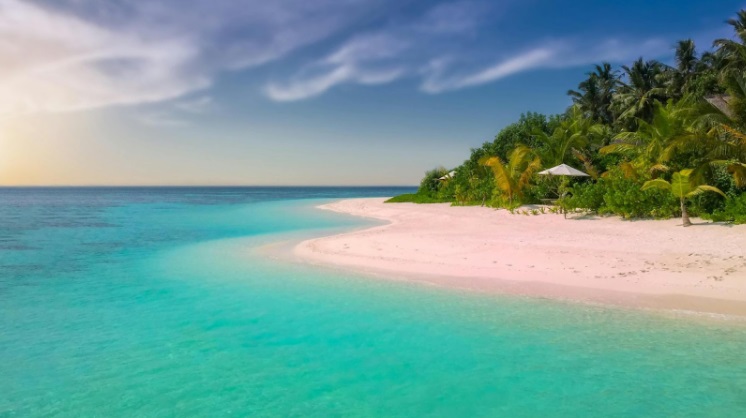
There is a growing movement in travel that does not involve snaking queues, selfie sticks, or suspicious tourist traps. Instead, more discerning travelers are choosing to pack their bags and head where most other people are not. Secluded destinations are now more enticing than ever. If you are wondering how to cash in on this trend, finding your slice of paradise through investment partners like Kepri Estates might be the answer.
The Appeal of Exclusivity
Tourism has become a victim of its own success. Once-charming destinations like Venice, Bali, and Machu Picchu are now overwhelmed with crowds, lines, and rising local resentment. The romantic ideal of exploration and escape has been replaced in many places with long waits, overbooked attractions, and the sense that you are just one more cash cow in an endless stream of visitors.
Overtourism not only frustrates travelers but also strains local infrastructure, damages the environment, and has sparked regulatory crackdowns in countries struggling to balance cultural preservation with economic gain. As a result, more travelers are rethinking their bucket lists and swapping the most popular destinations with lesser-known alternatives.
These days, privacy, space, and calm have become luxuries people are willing to pay for. The pandemic fast-tracked this trend by putting personal boundaries and crowd avoidance top of mind. Today, travelers seek experiences that feel personal, mindful, and off-grid. Boutique resorts, eco-stays, and digital detox destinations are thriving—with private islands being a perfect example.
Private Islands: A Lifestyle Fantasy
Private islands have long been the domain of celebrities and the ultra-wealthy. But thanks to the Internet, the dream is more accessible than ever. While the luxury end of the market still includes multi-million-dollar islands with private airstrips and villas, there are now more affordable options. Undeveloped islands in places like the Philippines can sometimes be purchased for under $500,000—much less than an apartment in some US cities!
As travel trends continue to favor luxury and seclusion, a well-designed island escape can attract high-end travelers willing to pay premium rates for exclusivity. With fewer competitors in remote destinations, private island properties command rates well above the norm, especially if they offer eco-conscious or wellness-focused stays. There is also long-term value in the land itself; islands are inherently scarce, making them coveted assets that could grow in value exponentially.
Beyond the financial aspect, the appeal of owning an island is indisputable. It offers the rare opportunity to start with a blank canvas and create something entirely your own. You could build a boutique resort or a small collection of luxury villas that cater to travelers seeking that same elusive sense of escape. Constructing from scratch gives you total control over the layout, design, and guest experience, from the interior design to the restaurant menu.
Not All Islands Are Created Equal
Before falling in love with turquoise waters and white sand, it is important to be clear about your goals. For example, a private villa residence might prioritize beauty and privacy, while a larger resort project will need development flexibility and accessibility to transportation routes. Some islands already have freshwater sources and power lines, while others may be completely undeveloped—meaning you will have to put more effort into the groundwork.
The location of the island is arguably more important than the physical island itself. Ownership laws vary greatly from country to country and there may also be environmental protection regulations that limit how much of the land you can build on. This is why performing a thorough title search, understanding zoning classifications, and learning about building permissions are essential before you commit to signing the cheque.
Given the complexity of these purchases, working with a specialist island realtor or investment agent is highly recommended. These professionals have access to listings not available to the general public and can assist with every step of the process, from the initial due diligence to the eventual property design and development. They can also connect you with local architects, law firms, and construction experts, helping turn your vision into reality.
Alternative Investment Models
If you are drawn to the idea of owning a private island but hesitant to take on the full financial and logistical responsibility, there are some alternatives. Fractional ownership allows several investors to pool their resources and jointly own a private island, sharing both the usage rights and ongoing costs.
Another option is to partner with an island investment firm that specializes in developing sustainable resorts on privately-owned islands. These firms handle everything from finding the right island to designing the resort and managing day-to-day operations.
Conclusion
There is no denying that mass tourism is out, and bespoke travel is in. From escaping the throngs in Tokyo to avoiding the selfies at Stonehenge, travelers are placing a premium on quiet, private experiences. Therefore, if you possess the budget and the vision, investing in a private island could be your next big lifestyle move and a savvy business decision.
But remember that paradise is not plug-and-play. Whether you are eyeing the Caribbean, Southeast Asia, or the Mediterranean, the guidance of someone with hands-on island investment experience can save you from costly mistakes. They can help you find not just an island but a project that balances your greatest dreams with sound financial strategy.













